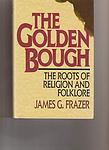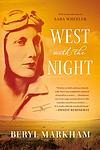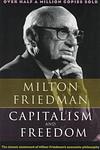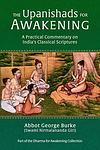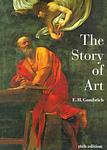The Greatest "Nonfiction" Books of All Time
Click to learn how this list is calculated.
This list represents a comprehensive and trusted collection of the greatest books. Developed through a specialized algorithm, it brings together 300 'best of' book lists to form a definitive guide to the world's most acclaimed books. For those interested in how these books are chosen, additional details can be found on the rankings page.
Genres
Countries
Date Range
Reading Statistics
Click the button below to see how many of these books you've read!
Download
If you're interested in downloading this list as a CSV file for use in a spreadsheet application, you can easily do so by clicking the button below. Please note that to ensure a manageable file size and faster download, the CSV will include details for only the first 500 books.
Download-
126. The Power Broker by Robert Caro
This book is a biography of Robert Moses, a powerful figure in New York City and state politics, who wielded immense influence over the urban development of the area in the mid-20th century. Despite never holding elected office, Moses was responsible for the creation of numerous parks, highways, bridges, and public works throughout the city and state. The book delves into the methods Moses used to achieve and maintain his power, his impact on the city, and the controversial legacy he left behind.
-
127. Notes of a Native Son by James Baldwin
This book is a collection of essays that vividly capture the author's life in Harlem, his travels in Europe, and his views on everything from the sweet music of black church revivals to the biting prejudice of the 'then' contemporary world. It's an exploration of racial, sexual, and class distinctions in both Western societies and the American society. The author's reflections on his experiences as a black man in white America are profoundly insightful and continue to resonate today.
-
128. Common Sense by Thomas Paine
This influential pamphlet, published in 1776, played a crucial role in persuading the colonists of the Thirteen Colonies to declare independence from Britain. It argues for the democratic system of government, criticizes monarchy and hereditary succession, and advocates for the inherent rights and freedoms of individuals. The text uses plain language to make complex political ideas accessible to the average citizen, promoting the idea that the colonies have a right to be an independent nation.
-
129. The Golden Bough by James George Frazer
"The Golden Bough" is a comprehensive study on mythology and religion, exploring the common themes found in different cultures around the world. The author uses a wide range of sources to argue that human belief progressed through three stages: primitive magic, replaced by religion, which in turn was replaced by science. The book delves into various rituals and customs, including the concept of the dying god in mythology and the role of fertility rites in agriculture. The author's theories have had a profound influence on both literature and anthropology.
-
130. Tristes Tropiques by Claude Lévi-Strauss
"Tristes Tropiques" is a blend of autobiography, travel literature, and anthropology by a renowned scholar. The book is a recounting of the author's travels and anthropological work, primarily in Brazil, in the 1930s. It provides a critical and philosophical reflection on his experiences and observations, offering insights into indigenous tribes like the Nambikwara and Tupi-Kawahib, and exploring themes of cultural change, the nature of anthropology, and the author's own disillusionment with Western civilization.
-
131. Desert Solitaire by Edward Abbey
Desert Solitaire is a collection of vignettes about life in the wilderness that reflects on the fierce beauty of the desert, the cruel indifference of nature, and the reckless destruction of the American West. The book, based on the author's experiences as a park ranger in Utah, explores the spiritual and philosophical dimensions of the desert environment, critiquing the commercialization and urbanization of the wild, and underscoring the importance of preserving natural landscapes.
-
132. The Making of the Atomic Bomb by Richard Rhodes
This comprehensive book provides an in-depth account of the development of the atomic bomb during World War II. It explores the scientific advancements that made the bomb possible, the political decisions that led to its creation, and the moral dilemmas faced by the scientists involved. The book also details the personalities of key figures in the Manhattan Project, the effects of the bomb on Hiroshima and Nagasaki, and the impact of nuclear weapons on the world.
-
133. Symposium by Plato
In "Symposium", a group of notable men including philosophers, playwrights, and politicians gather at a banquet and decide to each give a speech in praise of the god of love. Each speech presents a different perspective on love, ranging from the purely physical to the spiritual. The dialogue culminates with the speech of Socrates, who presents a philosophical view of love as a means of ascending to contemplation of the divine.
-
134. The Open Society by Karl Popper
This book is a critique of totalitarianism and a defense of liberal democracy. The author argues against the concept of a perfect, immutable society, instead advocating for an "open society" that allows for constant change and improvement. He criticizes theories of historical determinism and the notion of "the collective", emphasizing the importance of individual freedom and human rights. The book also examines and challenges the philosophies of Plato, Hegel, and Marx, linking their ideas to the rise of fascism and communism in the 20th century.
-
135. Quotations from Chairman Mao by Mao
This book is a collection of speeches and writings by the former leader of the People's Republic of China. It covers a wide range of topics including communism, revolution, class struggle, and the correct handling of contradictions among the people. The book was published with the intention of promoting the leader's ideology and was widely distributed during the Cultural Revolution. It was considered an essential guide to life and politics in China during this period.
-
136. The Snow Leopard by Peter Matthiessen
"The Snow Leopard" is a travelogue that recounts the author's two-month journey in the Himalayas with naturalist George Schaller. The duo trek through the rugged and remote mountains of Nepal on a quest to study the rare blue sheep and possibly spot the elusive snow leopard. The book is as much a spiritual journey as it is a physical one, with the author seeking solace and understanding following the death of his wife. The narrative explores themes of grief, nature, and Buddhism, offering a poignant and introspective look at life and loss.
-
137. The Female Eunuch by Germaine Greer
This book is a seminal feminist text that explores the oppression of women in society. It critiques the traditional roles and expectations of women in the mid-20th century, arguing that societal norms and conventions force women into a secondary, submissive role, effectively castrating them. The book encourages women to reject these norms and to embrace their own sexual liberation, arguing for the need for a revolution in the way women perceive themselves and their place in society.
-
138. West With the Night by Beryl Markham
The book is a memoir of a British-born woman who grew up in Kenya during the early 20th century. She recounts her unconventional upbringing, her passion for horses, and her career as a bush pilot. The narrative is filled with vivid descriptions of the African landscape and wildlife, as well as her personal adventures and encounters. The book culminates with her historic solo flight across the Atlantic from east to west.
-
139. The Road to Oxiana by Robert Byron
This travelogue chronicles a journey through Persia and Afghanistan in the 1930s, capturing the author's keen observations of the architecture, landscapes, and people he encounters. The narrative combines historical research, personal anecdotes, and vivid descriptions, providing a unique insight into these regions during this period. The author's witty and engaging style, combined with his passion for architecture, makes this book not just a travel diary but a valuable piece of cultural and historical documentation.
-
140. Reflections on the Revolution in France by Edmund Burke
This book is a political pamphlet written in the 18th century, where the author criticizes the French Revolution, arguing that it has gone too far in its quest for radical change. He asserts that the revolutionaries, in their rejection of tradition and their embrace of abstract notions of liberty and equality, have overlooked the complexities of real social and political life. The author advocates for gradual, prudent reform rather than sudden, violent change and emphasizes the importance of tradition and inherited institutions.
-
141. Words by Jean Paul Sartre
This book is a memoir that explores the author's early life and development as an intellectual. He reflects on his childhood experiences in a non-linear narrative, detailing his relationship with his mother and grandfather, his early education, and his evolving understanding of language and literature. The author also delves into his philosophical ideas, examining the concept of existentialism and the role of the individual in society. The book serves as a profound exploration of the power of words and the impact of childhood experiences on adult life.
-
142. Being and Time by Martin Heidegger
Being and Time is a seminal work that explores the concept of "being" through a detailed analysis of human existence. The book delves into existential and phenomenological thought, examining how humans relate to the world and their own existence. The author argues that people are always "being-in-the-world" and that understanding this fundamental state is crucial to comprehending the broader concept of being. The work also introduces the concept of "Dasein," a term used to describe the specific type of being that humans possess.
-
143. Capitalism and Freedom by Milton Friedman
This book explores the role of competitive capitalism - the organization of the bulk of economic activity through private enterprise operating in a free market - as both a device for achieving economic freedom and a necessary condition for political freedom. The author further examines how freedom could be preserved in a society where the roles and importance of government are ever expanding, and presents his view on topics such as monetary policy, fiscal policy, education, discrimination, and the alleviation of poverty.
-
144. The Worst Journey in the World by Apsley Cherry-Garrard
"The Worst Journey in the World" is a gripping account of the Terra Nova Expedition to the South Pole in 1910-1913. The book vividly describes the perilous journey undertaken by a team of explorers, their struggles with brutal weather conditions, and the tragic loss of their leader and four other members on their return from the Pole. The narrative is not only about physical survival in harsh conditions, but also about the psychological toll of such an expedition, making it a timeless testament to human endurance and spirit.
-
145. Annals by Cornelius Tacitus
"Annals" is a historical work that provides a comprehensive account of the Roman Empire from the reign of Tiberius in 14 AD to the death of Nero in 68 AD. The author, a senator and historian of the Roman Empire, explores the inner workings of Roman politics, military campaigns, and social culture during this period. The book offers an in-depth look at the political machinations, power struggles, and the moral decay of the Roman elite, providing a critical perspective on the Roman emperors and their rule.
-
146. The Waning of the Middle Ages by Johan Huizinga
"The Waning of the Middle Ages" is a historical analysis of the cultural life of the late Middle Ages, particularly in France and the Low Countries, during the 14th and 15th centuries. It delves into the period's modes of thought, forms of expression, religious beliefs, and social norms. The book argues that the era was characterized by a highly stylized and overwrought civilization, marked by an excessive emphasis on chivalry and courtly love, a religious mindset dominated by the fear of death and the afterlife, and a cultural milieu that was both highly imaginative and deeply pessimistic.
-
147. The Guns of August by Barbara Tuchman
"The Guns of August" is a detailed and engaging account of the first month of World War I. The book explores the events leading up to the war, the political and military strategies of the various countries involved, and the critical decisions that shaped the course of the conflict. It presents a vivid picture of the war's early stages, highlighting the miscalculations, miscommunications, and misunderstandings that led to one of the most devastating wars in history.
-
148. The Periodic Table by Primo Levi
"The Periodic Table" is a collection of short stories that use elements of the periodic table as metaphors to explore the author's experiences as a Jewish-Italian chemist before, during, and after World War II. Each chapter is named after a chemical element, reflecting its significant role in the story. The work provides deep insights into the human condition and the power of science, while also serving as a poignant memoir of survival during the Holocaust.
-
149. Upanishads by Hindu scripture
The book is a comprehensive compilation of ancient Hindu scriptures known as the Upanishads, which are fundamental to understanding the core philosophies of Hinduism. The text delves into profound spiritual teachings and philosophical dialogues about the nature of reality, the self, and the universe, providing invaluable insights into concepts such as karma, reincarnation, moksha, and the ultimate truth of existence. It serves as a guide to spiritual enlightenment and self-realization, offering timeless wisdom for introspection and personal growth.
-
150. The Story of Art by E. H. Gombrich
"The Story of Art" is a comprehensive guide to the history of art, covering a vast span of time from prehistoric art to contemporary movements. The book provides insights into the cultural, historical, and social contexts that have influenced the creation of art throughout various periods. It offers detailed analysis of major works and styles, and discusses the techniques used by artists from different eras. It is not only an exploration of the evolution of art but also an attempt to understand the motivations and inspirations of the artists behind the works.
Reading Statistics
Click the button below to see how many of these books you've read!
Download
If you're interested in downloading this list as a CSV file for use in a spreadsheet application, you can easily do so by clicking the button below. Please note that to ensure a manageable file size and faster download, the CSV will include details for only the first 500 books.
Download


